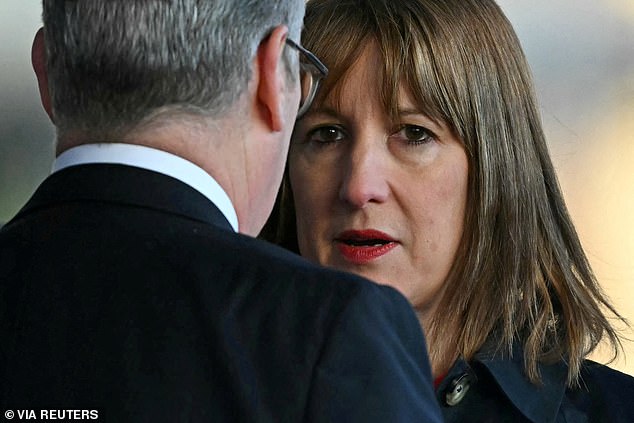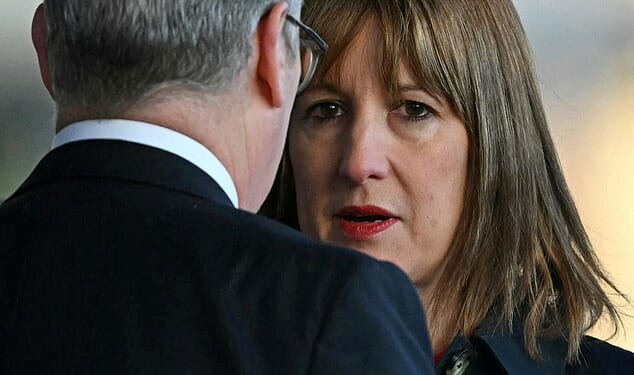Jobs have been slashed in the private sector for 12 successive months for the first time since the pandemic – even as the bloated public sector continues to expand.
The grim milestone was revealed in a monthly business survey that lays bare Britain’s deteriorating economic outlook under Labour.
And in a separate report, experts said the Government’s punishing tax measures were mainly to blame for the UK’s faltering performance rather than global turmoil caused by Donald Trump.
Rachel Reeves‘ decision to hike employer national insurance has piled the pain on businesses struggling to grow by making it more expensive to hire workers.
Critics say the Chancellor has been too ready to heap more costs on firms while at the same time caving to the demands of its union paymasters.
Tory business spokesman Andrew Griffith said: ‘Thanks to Labour’s choices, productive private sector jobs have been cut for 12 months in a row – even as the public sector continues to balloon.’
The monthly purchasing managers’ index (PMI) survey from financial firm S&P Global revealed that around 50,000 private sector jobs had been lost in the three months to September.

Private sector jobs have been slashed for 12 successive months for the first time since the pandemic as Rachel Reeves’ employer national insurance hike piles the pain on businesses
The latest employment slump means firms have slashed worker numbers every month since last October when Ms Reeves revealed her painful initial Budget.
Excluding the Covid period of 2020-2021, there has not been such a prolonged decline in private sector jobs since the financial crisis of 2008-2009.
Figures last week showed the public sector has added 75,000 jobs since Labour came to power to hit the highest number since 2011.
Tuesday’s PMI data also showed growth in private sector activity has slowed more sharply than expected to its weakest in four months.
It gave a reading of 51.0 for September – down from 53.5 in August. A score above 50 signals growth and anything below points to contraction.
Chris Williamson, from S&P Global Market Intelligence, said the survey ‘brought a litany of worrying news including weakening growth, slumping overseas trade, worsening business confidence and further steep job losses’.
He added that the weakening in business activity suggested growth was ‘almost stalling’ and ‘alarm bells should be ringing that the economy is faltering’.
Another report from S&P Global’s ratings arm, which assesses the creditworthiness of borrowers including governments, also painted a downbeat picture.
While it upgraded the UK growth outlook for the year as a whole from 0.9 per cent to 1.2 per cent, this was largely attributed to a better-than-expected start to the year as firms ‘front-loaded’ exports to the US ahead of the imposition of tariffs by Mr Trump.
Meanwhile, David Ricks, boss of Mounjaro maker Eli Lilly, became the latest drugs firm chief to warn the UK risks missing out on new drugs saying: ‘I don’t think they will see much investment.’












